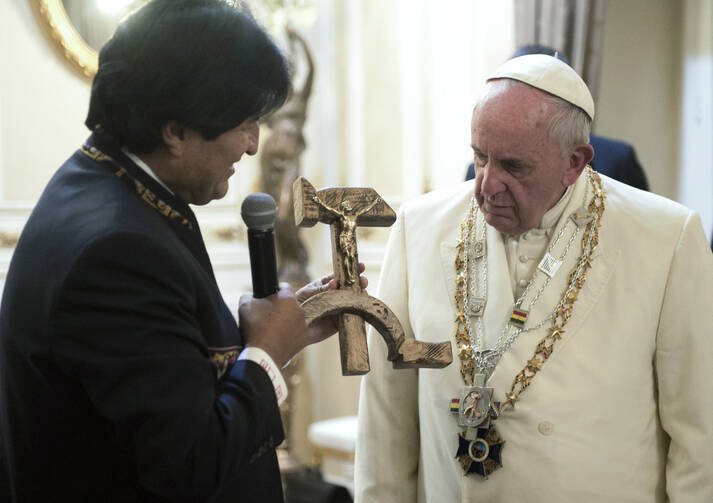S
snarflemike
Guest
I’m sure they’ll reward him with his very own labor camp when Canada falls.

The author of the pro-Communism article? :crazy_face:Who does Catholicism say ought to be killed and then eaten?
There is a YouTube version. I agree with you completely, you cannot read/listen to this literature without realizing how devoid of humanity and sanity this ideology was and how oppressive and authoritarian it needs to be in order to stay in power.Read “The Gulag Archipelago” and you will never, never be the same.
Now lets see what Marx actually wrote:Something like this is paralleled in “The Communist Manifesto,” when Marx and Engels underscore that abolishing private property means abolishing not personal property, or the kinds of things an artisan or farmer might own, but the amassed property held by the rich, which divides human beings into antagonistic classes of people—in other words, the kind of private property that most of us do not have.
Marx never said that the property of artisans and farmers would not be destroyed, he just said that was not needed because it did not exist. What he did say, quite explicitly:Hard-won, self-acquired, self-earned property! Do you mean the property of petty artisan and of the small peasant, a form of property that preceded the bourgeois form? There is no need to abolish that; the development of industry has to a great extent already destroyed it, and is still destroying it daily.
Now, there is no doubt that Marx was mainly referring to bourgeois private property, but we cannot assume he did not mean all property which can generate wealth. Indeed, would we argue that Marx did not intend to eliminate the property of the nobility?The distinguishing feature of Communism is not the abolition of property generally, but the abolition of bourgeois property. But modern bourgeois private property is the final and most complete expression of the system of producing and appropriating products, that is based on class antagonisms, on the exploitation of the many by the few.
In this sense, the theory of the Communists may be summed up in the single sentence: Abolition of private property.
Finally, the author conviently ignores Marx’s call to abolish the family and home-education. These two things alone, are enough to make Communism completely at odds with the Church’s social teaching.I shall die a proletarian revolutionist, a Marxist, a dialectical materialist, and, consequently, an irreconcilable atheist.
I will look this up later today and see what I find. For now, all I can do is lament the fact that this article could have been published in any Catholic magazine. Indeed, the idea that a defense of communism in any sort is again acceptable in even liberal publications is a sad reflection of where we are in our society. The 20th century was such an abomination. I am reminded of David Berlinsky’s quote:I have heard that the editor of ‘America’ has written a piece about the article, explaining why it was published, but I have not seen it yet.
The fact that people are forgetting how horrible it was, that we are downplaying how horrible it was, is very alarming.It is in this sense that the twentieth century, having introduced into human history crimes never before imagined, or if imagined, never before undertaken, is immortal, and will, like the crucifixion, remain a permanent part of the human present.

America , in other words, is not a journal of Father Matt’s opinions. Not even I would want to read such a magazine. This is a journal of Catholic opinion, and Catholics have differing opinions about many things. Our job is to host a conversation among Catholics and our friends in which people can respectfully and intelligently disagree. Accordingly, we publish something in almost every issue with which I personally disagree. I hope we publish something you disagree with, too. If not, we are not doing our job.

I don’t think Dean Dettloff would be digestible.The author of the pro-Communism article? :crazy_face:
That would be under the assumption that all opinions are equally valid. That is rubbish. Some opinions are true (defence of the Catholic faith) and others are blatantly false (defence of Communism or the immoral ideologies and practices I noted). And some ideologies are utterly incompatible with Catholicism. People are entitled to their own opinions but not their own facts.I read the editor’s defense of publishing the article that was referred to above by @CilladeRoma. It would seem he would be open to publishing everyone one of your proposed articles if one can find a Catholic who has a positive opinion about those topics.
